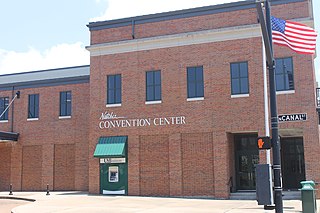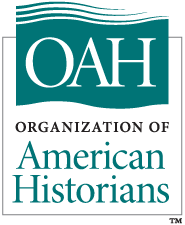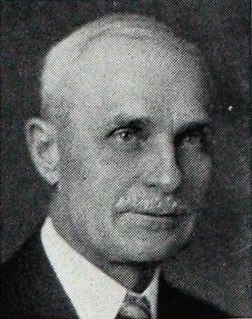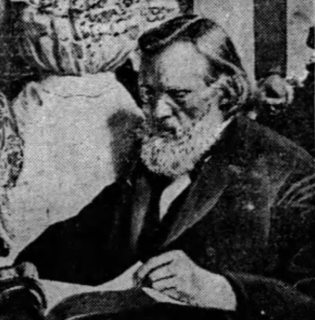Related Research Articles

Robert Lansing was an American lawyer and diplomat who served as Counselor to the State Department at the outbreak of World War I, and then as United States Secretary of State under President Woodrow Wilson from 1915 to 1920. A conservative pro-business Democrat, he was pro-British and a strong defender of American rights at international law. He was a leading enemy of German autocracy and Russian Bolshevism. Before U.S. involvement in the war, Lansing vigorously advocated in favor of the principles of freedom of the seas and the rights of neutral nations. He later advocated U.S. participation in World War I, negotiated the Lansing–Ishii Agreement with Japan in 1917 and was a member of the American Commission to Negotiate Peace at Paris in 1919. However, Wilson made Colonel House his chief foreign policy advisor because Lansing privately opposed much of the Versailles treaty and was skeptical of the Wilsonian principle of self-determination.

Natchez is the county seat and only city of Adams County, Mississippi, United States. Natchez has a total population of 15,792. Located on the Mississippi River across from Vidalia in Concordia Parish, Louisiana, Natchez was a prominent city in the antebellum years, a center of cotton planters and Mississippi River trade.

The Twenty-One Demands was a set of demands made during the First World War by the Empire of Japan under Prime Minister Ōkuma Shigenobu to the government of the Republic of China on 18 January 1915. The secret demands would greatly extend Japanese control of China. It would keep the former German areas it had conquered at the start of World War I in 1914. It would be strong in Manchuria and South Mongolia. It would have an expanded role in railways. The most extreme demands would give Japan a decisive voice in finance, policing, and government affairs. The last part would make China in effect a protectorate of Japan, and thereby reduce Western influence. Japan was in a strong position, as the Western powers were in a stalemated world war with Germany. Britain and Japan had a military alliance since 1902, and in 1914 London had asked Tokyo to enter the war. Beijing published the secret demands and appealed to Washington and London. They were sympathetic and forced Tokyo to drop section 5. In the final 1916 settlement, Japan gave up its fifth set of demands. It gained a little in China, but lost a great deal of prestige and trust in Britain and the U.S.

Si vis pacem, para bellum is a Latin adage translated as "If you want peace, prepare for war".

Corra Mae Harris, was an American writer and journalist. She was one of the first women war correspondents to go abroad in World War I.

The Journal of American History is the official academic journal of the Organization of American Historians. It covers the field of American history and was established in 1914 as the Mississippi Valley Historical Review, the official journal of the Mississippi Valley Historical Association. After the publication of its fiftieth volume, the recognition of a shift in the direction of the membership and its scholarship led to the name change in 1964.

The Organization of American Historians (OAH), formerly known as the Mississippi Valley Historical Association, is the largest professional society dedicated to the teaching and study of American history. OAH's members in the U.S. and abroad include college and university professors; historians, students; precollegiate teachers; archivists, museum curators, and other public historians; and a variety of scholars employed in government and the private sector. The OAH publishes the Journal of American History. Among its various programs, OAH conducts an annual meeting each spring, and has a robust roster on its OAH Distinguished Lecturership Program.

Emanuel Lorenz Philipp was an American railroad executive and politician from Wisconsin, who served as the 23rd governor of Wisconsin from 1915 to 1921.
Lawrence Henry Gipson was an American historian, who won the 1950 Bancroft Prize and the 1962 Pulitzer Prize for History for volumes of his magnum opus, the fifteen-volume history of "The British Empire Before the American Revolution", published 1936–70. He was a leader of the "Imperial school" of historians who studied the British Empire from the perspective of London, and generally praised the administrative efficiency and political fairness of the Empire.
Merle Eugene Curti was a leading American historian, who taught many graduate students at Columbia University and the University of Wisconsin, and was a leader in developing the fields of social history and intellectual history. He directed 86 finished Ph.D. dissertations and had an unusually wide range of correspondents. As a Progressive historian he was deeply committed to democracy, and to the Turnerian thesis that social and economic forces shape American life, thought and character. He was a pioneer in peace studies, intellectual history, and social history, and helped develop quantitative methods based on census samples as a tool in historical research.

The National Security League (NSL) was an American patriotic, nationalistic, nonprofit, nonpartisan organization that supported a greatly-expanded military based upon universal service, the naturalization and Americanization of immigrants, Americanism, meritocracy, and government regulation of the economy to enhance national preparedness.
Frederic Logan Paxson was an American historian. He had also been President of the Mississippi Valley Historical Association. He had undergraduate and PhD degrees from the University of Pennsylvania, as well as a master's from Harvard University. He taught at Wisconsin as successor to Frederick Jackson Turner and the University of California-Berkeley from 1932 to 1947.
Theodore Christian Blegen was an American historian and author. Blegen was the author of numerous historic reference books, papers and articles written over a five decade period. His primary areas of focus were of the history of the state of Minnesota and of Norwegian-American immigration.

The American entry into World War I came in April 1917, after more than two and a half years of efforts by President Woodrow Wilson to keep the United States out of the war.

The 1900 United States elections elected the 57th United States Congress. The election was held during the Fourth Party System. Republicans retained control of the Presidency and both houses of Congress, while third parties suffered defeats.

The 1896 United States elections elected the 55th United States Congress. Republicans won control of the Presidency and maintained control of both houses of Congress. The election marked the end of the Third Party System and the start of the Fourth Party System, as Republicans would generally dominate politics until the 1930 elections. Political scientists such as V.O. Key, Jr. argue that this election was a realigning election, while James Reichley argues against this idea on the basis that the Republican victory in this election merely continued the party's post-Civil War dominance. The election took place in the aftermath of the Panic of 1893, and featured a fierce debate between advocates of bimetallism and supporters of the gold standard.

Oliver Morton Dickerson was an American historian, author, and educator. Like his fellow historians Charles McLean Andrews and Lawrence Henry Gipson, Dickerson was a proponent of the "Imperial school" of historians who believed that the American colonies could not be studied or understood except as part of the British Empire. Among his publications were works on the British Board of Trade, the Navigation Acts, and Boston under military rule.
After 1780, the United States began relations with North African countries and with the Ottoman Empire.

Alban Jasper Conant was a painter best known for painting the first portrait of Abraham Lincoln.

Recollections of Full Years is a 1914 memoir by Helen Taft, a First Lady of the United States and wife of William Howard Taft. The memoirs were the first to be published by a first lady. The book serves as "the most important source of information" about Helen taft.
References
- ↑ Joseph Edward Cuddy (1976). Irish-America and National Isolationism, 1914-1920. Ayer Publishing. ISBN 978-0-405-09328-9.
- ↑ Clifton J. Child (1938). "German-American Attempts to Prevent the Exportation of Munitions of War, 1914-1915". The Mississippi Valley Historical Review. The Mississippi Valley Historical Review, Vol. 25, No. 3. 25 (3): 351–368. doi:10.2307/1897253. JSTOR 1897253.